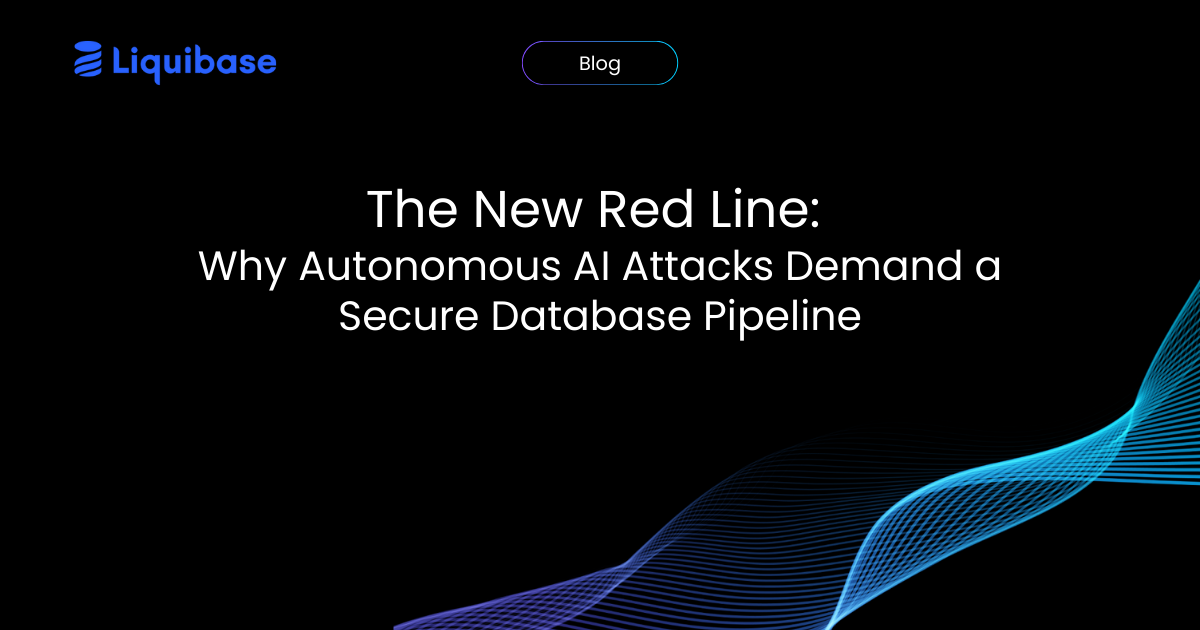Strengthening Liquibase Community for the Future
September 30, 2025
See Liquibase in Action
Accelerate database changes, reduce failures, and enforce governance across your pipelines.

Key Takeaways
- Liquibase Community is moving to the Functional Source License (FSL) starting with version 5.0.
- Developers can continue to use Liquibase Community freely in production, modify code, and contribute.
- FSL prevents third parties from commercializing Liquibase Community in competing ways.
- Two years after release, the license for each applicable version of Liquibase Community code reverts to Apache 2.0.
- Contributors must now sign a one-time Contributor License Agreement (CLA) when submitting pull requests.
Liquibase has always been about empowering developers to manage database change with speed and confidence. Over the past decade, the Liquibase Community edition has been downloaded millions of times and has become a trusted part of developer workflows across industries.
As adoption has grown, so has our responsibility to ensure the project remains sustainable and continues to thrive. That’s why, with the release of Liquibase 5.0, we are updating the license for Liquibase Community.
Why We’re Making This Change
The open source model has fueled the incredible growth of Liquibase. It has also created challenges when third parties take open source projects, repackage them, and monetize them without contributing back. This kind of one-sided exploitation erodes sustainability and hurts the very communities that make open source thrive.
This isn’t just a theoretical risk. We’ve already seen it happening with Liquibase Community. While we welcome healthy competition and ecosystem growth, there’s a difference between collaborating and taking. Without protections in place, the community carries the cost while others capture the benefit.
To safeguard the health of the project and ensure continued innovation, Liquibase Community will now be licensed under the Functional Source License (FSL).
What Is the Functional Source License (FSL)?
FSL is a modern, clear license created by Sentry and backed by a consortium of software companies. It was designed as a simpler, more predictable alternative to older “source available” licenses like the Business Source License (BSL) and Commons Clause.
We’re joining peers like Sentry in adopting FSL, a license designed for clarity and sustainability. This isn’t an experiment. It’s a proven approach other infrastructure leaders are already using to balance adoption with fairness.
Here’s what FSL means for Liquibase users:
- Free for developers: You can use Liquibase Community freely in production, on-prem, and in the cloud to manage database migrations for your applications and services.
- Free to modify: You can fork the repo and extend functionality to meet your needs. If you think your modifications would benefit others we’d love to look at a pull request to contribute back to the project.
- Protected from exploitation: The critical restriction is that third parties cannot take Liquibase Community and commercialize it in a way that competes with Liquibase.
- Open over time: Two years after each release, the license automatically reverts to Apache 2.0.
This approach ensures day-to-day freedom for developers while protecting the sustainability of the project.
What Doesn’t Change
- Developers: You can still download, run, and extend Liquibase Community at no cost.
- Enterprises: You can continue to run Liquibase Community in your CI/CD pipelines and production environments.
- Contributors: You can still fork, experiment, and submit pull requests. Starting with Liquibase 5.0, new contributors will be asked to sign a one-time CLA.
- Liquibase Secure: Our enterprise edition remains a commercial offering with advanced governance, security, and support.
In short, nothing changes for how regular users use Liquibase Community today.
What This Means for the Community
The move to FSL is about fairness and sustainability. It keeps Liquibase Community vibrant and accessible, while protecting the integrity of the ecosystem.
This ensures Liquibase Community remains healthy for the next decade, not just for us but for everyone relying on it.
We know license changes can raise questions. That’s why we’ve prepared a detailed FAQ and will be hosting a community call shortly after the 5.0 release to answer questions and hear feedback directly.
Liquibase Community License FAQ
What license is Liquibase Community now under?
Starting with version 5.0, Liquibase Community is licensed under the Functional Source License, Version 1.1, ALv2 Future License (FSL-1.1-ALv2).
Can I still use Liquibase Community in production?
Yes. Enterprises and developers can continue running Liquibase Community in development, test, and production environments. Nothing changes about day-to-day use for regular users.
Do I need to sign anything to contribute?
Yes. Starting with Liquibase 5.0, contributors will be asked to sign a one-time Contributor License Agreement (CLA) via CLA Assistant when submitting their first pull request. This is standard practice across many open source projects and ensures Liquibase can legally include contributions while you retain ownership of your work.
Can I modify Liquibase Community or contribute back?
Yes. You can fork the code, extend it, and submit pull requests just as you always have.
What restrictions does FSL introduce?
The critical restriction is that third parties cannot take Liquibase Community and commercialize it in a way that competes with Liquibase (for example, offering Liquibase Community as a managed service).
What happens after two years?
The applicable license for every release of Liquibase Community automatically reverts to Apache 2.0 two years after its release. At that point, FSL and its Competing Use restrictions no longer apply.
Do older versions change?
No. All versions of Liquibase Community released under Apache 2.0 remain under Apache 2.0. FSL applies only to Liquibase Community 5.0 and later.
Does this affect Liquibase Secure?
No. Liquibase Secure continues to be offered under a commercial license with advanced features, governance, and support.
Is FSL an open source license?
No. FSL does not technically meet the definition of “open source” promulgated by the Open Source Initiative. FSL may be referred to as a “source available” or “fair source” license. The code remains open to view, modify, and use, but the license restricts competing commercial use during the two-year period.
Why did Liquibase choose FSL?
We chose FSL because it is:
- Simple and predictable (two-year window, then Apache).
- Backed by a consortium of software companies.
- The meaning of FSL's terms is explained by a community and not dictated by any particular company.
- Clearer than alternatives like BSL or Commons Clause.
- Designed to protect sustainability while keeping developer freedom intact.
How does this affect current Liquibase users?
If you’re a developer, contributor, or enterprise running Liquibase Community internally, nothing changes in how you use the software.
Looking Ahead
Liquibase is committed to keeping Community free and thriving. By adopting FSL, we’re ensuring that Liquibase continues to empower developers everywhere while protecting the project’s long-term future.
- Download Liquibase 5.0 and see what’s new.
- Join our Discord and Reddit communities or contribute on GitHub to be part of the conversation.
Together, we’ll continue building the future of database change management.




.png)
.png)

.png)





